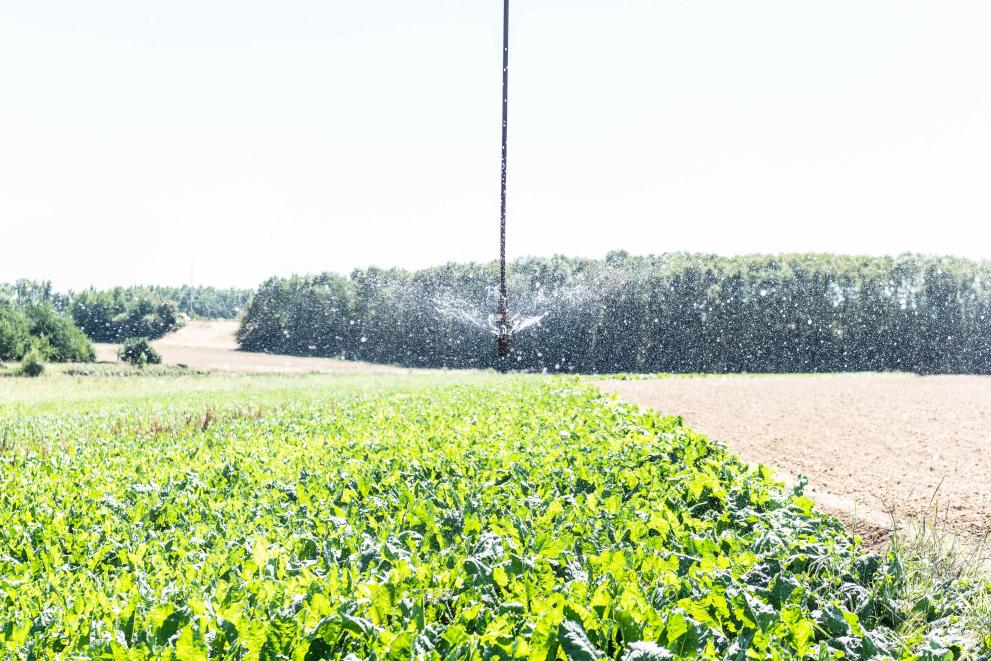
Today, new requirements for the safe reuse of treated wastewater in agricultural irrigation become the norm across most of the European Union. As a response to increasing evidence that there is less rain in many parts of Europe, the Union is now equipped with a new piece of legislation that will make the use of treated wastewater to irrigate crops safe, transparent and accessible to farmers: the Water Reuse Regulation. The Regulation will now apply in all Member States except those that have decided to make use of a regulatory opt-out clause (see map of where water reuse is or not allowed).
The Water Reuse Regulation (WRR) will increase the trust of consumers and farmers in this circular approach to the use of water, ensuring that it is safe and reducing the pressures of abstractions on increasingly scarce water resources, while maintaining the ability to grow food. It will also help preserve the water resources needed by the aquatic and terrestrial ecosystems. Enhancing a more circular management of water helps protecting biodiversity, achieving zero pollution and adapting to climate change.
Commissioner for the Environment, Oceans and Fisheries, Virginius Sinkevičius said:
Water is a precious resource that is becoming more and more scarce. Just as we are increasingly reusing other materials and rare commodities, urban wastewater can be successfully treated with the available technologies. That opens many possibilities for farmers who can use such reclaimed water safely for irrigation. With these new standards, consumers and farmers can be confident in the quality and safety of agricultural produce irrigated with reclaimed water.
While water reuse is already successfully deployed in some Member States and in other parts of the world, only 2.4 % of the total treated urban wastewater is being reclaimed and reused in the EU. Moreover, the amount of treated wastewater which is reclaimed varies considerably between Member States. While few countries reclaim almost all their treated wastewater (up to 89%), the majority reclaim only a small percentage (as little as 5% in some cases), or do not practice water reuse. This show that there is a huge potential to make a more efficient use of water.
This is essential to adapt to climate change and to ensure our food security. It is also in line with the Water Action Agenda adopted at the UN 2023 Water Conference, with particular focus on access to sufficient water of good quality and adaptation to climate change.
Background
In the context of the European Green Deal, both the Circular Economy Action Plan and the new EU Climate Adaptation Strategy refer to wider use of treated wastewater as a way to increase the EU’s ability to respond to the increasing pressures on water resources. The proposal for the revision of the Urban Wastewater Treatment Directive strengthens the existing provision encouraging water reuse, by requiring Member States to systematically promote the reuse of treated wastewater from all urban wastewater treatment plants. A swift adoption of the proposal, with its requirements to better monitor, track and reduce pollution at source, will improve the quality of treated urban wastewater, thus further facilitating its reuse.
Water reuse also contributes to the Farm to Fork Strategy’s goal of reducing the environmental footprint of the EU food system and strengthening its resilience, by providing an alternative, more reliable water source for irrigation. Funding opportunities for investments in irrigation with reclaimed water as an alternative water supply exist under the Common Agricultural Policy.
The Water Reuse Regulation sets harmonised minimum water quality requirements for the safe reuse of treated urban wastewater in agricultural irrigation, to facilitate the uptake of this practice. The Regulation foresees the possibility for Member States to decide not to introduce this practice, or to do so only at a later stage, on the basis of specific criteria. Such decisions must be regularly reviewed to take into account climate change projections and national strategies, as well as the river basins management plans established under the Water Framework Directive.
Since many rivers and other water bodies belong to different countries, transboundary cooperation must be ensured and Member States will have to designate a contact point to ensure coordination and timely exchanges between each other. The Regulation also sets out harmonised minimum monitoring requirements, risk management provisions to assess and address potential additional health risks and possible environmental risks, permitting obligations, and provisions on transparency, whereby key information about any water reuse project is to be made publicly available.
More information
Euronews Road to Green episode on wastewater reuse for irrigation
Details
- Publication date
- 26 June 2023
- Author
- Directorate-General for Environment

